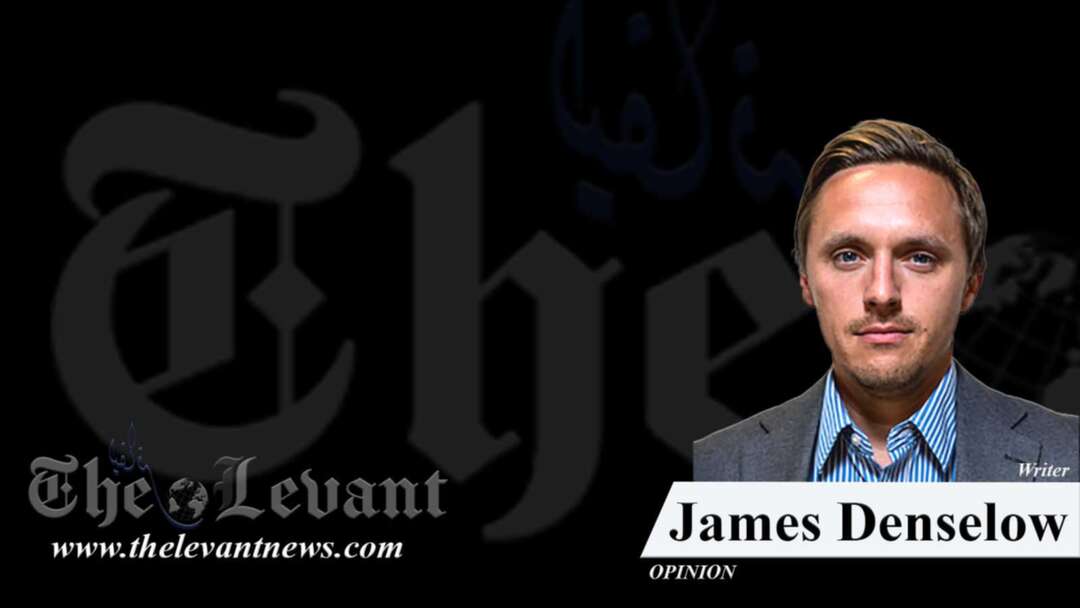-
Syria’s Wobbling War Economy

James Denselow
The headlines from Syria have rightly focused on the escalating violence in the northwest of the country where almost a million people are on the move displaced by the fighting. However, as the Syrian conflict approaches its ninth anniversary in March it is worth keeping a close eye on the unravelling of the country’s economy.
Indeed with the Syrian currency collapsing to record lows, the Government in Damascus launched a symbolic ‘one-pound’ campaign which encourages traders to sell goods or services for only one Syrian pound. The one-pound coin has no real value and the campaign is an attempt to keep millions for falling way below the poverty line.
Already eight out of ten Syrians earn less than $100 a month and the currency’s disintegration means they’re seeing sky-rocketing prices. The pre-war exchange rate saw 48 pounds per dollar, today the official rate is 434 pounds but the unofficial rate has topped over 1,200 pounds per dollar.
The perfect economic storm is engulfing the country. Intensive fighting with little regard for the use of precision munitions has battered many of the key urban districts and gutted industrial manufacturing. The loss of human capital has seen half the country flee their homes, millions of highly skilled Syrians have left the country entirely. Education and professional training have all stalled as the country’s leadership focuses on the existential fight for its own survival.
On top of this sanctions from large parts of the international community are limited what potential there is for trade and prosperity. In particular the continued isolation of the Regime’s leadership means there is little prospect of major reconstruction investment and instead they’ve focused on giving subsidised concessions to their Iranian and Russian allies which have done little to kick start the economy.
Whilst the ‘one pound’ campaign is the soft cuddly part of the Regime’s approach, the more heavy handed response is the detaining of merchants selling products in dollars and clamping down on money exchange houses. Meanwhile they are looking to reform the means of subsidising basic items - rice, tea and sugar for example - to show that they are taking steps to protect the most vulnerable Syrians still living in their control.
However, millions remain dependent on humanitarian aid to get by, with the World Food Programme reaching some 4.5 million Syrians in December alone. Attempts to support basic items via subsidy are a stark contrast to the efforts the Regime and its allies have made to impair cross-line and cross border aid from getting to Syrians in all parts of the country.
Syria’s battered social and human infrastructure is exacerbated by international sanctions, regional chaos - particularly the protests and economic instability in neighbouring Lebanon and Iraq - as well as the corruption that has blighted the country for decades. What is more areas of the country with lucrative natural resources are outside of the government’s control.
Recent weeks have seen US and Russian forces come head to head around who can move where in the northeast of the country. Here the ‘Syrian Democratic Forces’ sovereignty over the east of the Euphrates takes with it access to oil and gas that the Regime in Damascus desperately needs.
This year’s ‘Corruption Perceptions Index’ placed Syria in the bottom three globally alongside Somalia and South Sudan. Average wealth in Syria has plummeted from $10,000 before the war to $2,000 today. It’s not obvious where the foreign direct investment needed to reverse this collapse will come from whilst the Regime, its structure and personnel remain in place.
In many respects you could argue that its one thing to win back territory with the support of powerful allies and with the absence of international restrictions to the Regime’s behaviour, it’s quite another to transition from a war economy to a sustainable post-war economy with the impediments that this article has outlined. Indeed the solidarity that comes with the narrative of continued conflict and campaigns such as ‘one pound’ may fray if and when the northwest falls more fully under Regime control. The paradox being that continued conflict is both the cause of the country’s economic collapse and perhaps one of the only means it survives that same collapse.
You May Also Like
Popular Posts
Caricature
BENEFIT Sponsors BuildHer...
- April 23, 2025
BENEFIT, the Kingdom’s innovator and leading company in Fintech and electronic financial transactions service, has sponsored the BuildHer CityHack 2025 Hackathon, a two-day event spearheaded by the College of Engineering and Technology at the Royal University for Women (RUW).
Aimed at secondary school students, the event brought together a distinguished group of academic professionals and technology experts to mentor and inspire young participants.
More than 100 high school students from across the Kingdom of Bahrain took part in the hackathon, which featured an intensive programme of training workshops and hands-on sessions. These activities were tailored to enhance participants’ critical thinking, collaborative problem-solving, and team-building capabilities, while also encouraging the development of practical and sustainable solutions to contemporary challenges using modern technological tools.
BENEFIT’s Chief Executive Mr. Abdulwahed AlJanahi, commented: “Our support for this educational hackathon reflects our long-term strategic vision to nurture the talents of emerging national youth and empower the next generation of accomplished female leaders in technology. By fostering creativity and innovation, we aim to contribute meaningfully to Bahrain’s comprehensive development goals and align with the aspirations outlined in the Kingdom’s Vision 2030—an ambition in which BENEFIT plays a central role.”
Professor Riyadh Yousif Hamzah, President of the Royal University for Women, commented: “This initiative reflects our commitment to advancing women in STEM fields. We're cultivating a generation of creative, solution-driven female leaders who will drive national development. Our partnership with BENEFIT exemplifies the powerful synergy between academia and private sector in supporting educational innovation.”
Hanan Abdulla Hasan, Senior Manager, PR & Communication at BENEFIT, said: “We are honoured to collaborate with RUW in supporting this remarkable technology-focused event. It highlights our commitment to social responsibility, and our ongoing efforts to enhance the digital and innovation capabilities of young Bahraini women and foster their ability to harness technological tools in the service of a smarter, more sustainable future.”
For his part, Dr. Humam ElAgha, Acting Dean of the College of Engineering and Technology at the University, said: “BuildHer CityHack 2025 embodies our hands-on approach to education. By tackling real-world problems through creative thinking and sustainable solutions, we're preparing women to thrive in the knowledge economy – a cornerstone of the University's vision.”
opinion
Report
ads
Newsletter
Subscribe to our mailing list to get the new updates!




















